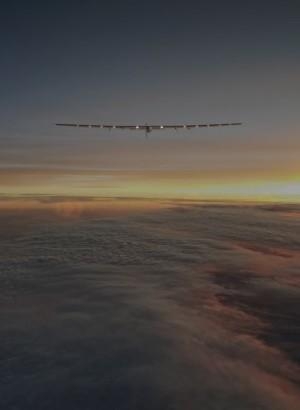Fri, Nov 22, 2019
Skydweller Aero Is Developing The World's First Solar-Powered Drone Capable Of Perpetual Flight With Heavy Payloads
Leonardo is accelerating the progress of technology and innovation in autonomous flight by investing in Skydweller Aero Inc., a U.S./Spanish start-up specializing in large-scale solar-powered unmanned air systems. The initiative will result in the development and deployment of the Skydweller drone, the world’s first fully electric unmanned aircraft capable of carrying large payloads with unlimited range and ultra-persistent endurance.

"As the key technological investor and partner of the project, Leonardo will broaden its capabilities in new power systems, autonomous flight, innovative aerostructures, ultra-light materials and eco-friendly technologies to improve the company's competitive advantage in the aerospace business for the next 20 years," said Alessandro Profumo, CEO of Leonardo.
Thanks to its unique features, Skydweller combines potentially unlimited persistence and range with the flexibility of an aircraft. It will operate from existing airbases around the world, deploy thousands of miles away to areas of high need, and remain overhead for orders of magnitude longer than current aircraft. This revolutionary platform will be used for purposes ranging from land and maritime surveillance to monitoring the environment and infrastructure, from industrial geo-information services to telecommunications and precision navigation. During emergencies and disaster-recovery situations, the system can be rapidly deployed from distant locations to provide backup communications and direct support to first responders.
The Skydweller project builds on a proven and mature aircraft that successfully circumnavigated the globe in 2016. The first phase focuses on converting the aircraft from a manned platform into an Optionally-Piloted Vehicle (OPV) by integrating advanced autonomy algorithms and vehicle management systems. The second step of the project will culminate in the first production aircraft, designed solely for unmanned operations and hardened against a range of environmental conditions. Autonomous flights of the OPV are projected for 2020 and the first production model of the unmanned version of the aircraft is expected in 2021.
The system will comply with European export laws and will not be subject to International Traffic in Arms Regulations (ITAR) restrictions. This will enable the aircraft to satisfy government and commercial needs around the world. Leonardo will act as the prime contractor for commercial opportunities in Italy, the United Kingdom, Poland and NATO.
Development and construction of the aircraft will be carried out at the Skydweller facility in the Castilla-La Mancha region of Spain. Leonardo Aircraft division will participate in development and engineering activities via a dedicated team.
(Image provided with Leonardo news release)
More News
“We respectfully call on the City of Mesa to: 1. Withdraw the landing fee proposal immediately 2. Engage with the aviation community before making decisions that impact safet>[...]
High Speed Taxiway A long radius taxiway designed and provided with lighting or marking to define the path of aircraft, traveling at high speed (up to 60 knots), from the runway ce>[...]
Aero Linx: International Federation of Airworthiness (IFA) IFA uniquely combines together all those with responsibility for policies, principles and practices concerned with the co>[...]
Controller’s Expectation That VW02 Would Have Departed Sooner Led To An Inadequate Scan And Loss Of Situational Awareness Analysis: A Robinson R-44 helicopter N744AF, VW02 (V>[...]
A Few Questions AND Answers To Help You Get MORE Out of ANN! 1) I forgot my password. How do I find it? 1) Easy... click here and give us your e-mail address--we'll send it to you >[...]
 Aero-News: Quote of the Day (12.09.25)
Aero-News: Quote of the Day (12.09.25) ANN's Daily Aero-Term (12.09.25): High Speed Taxiway
ANN's Daily Aero-Term (12.09.25): High Speed Taxiway ANN's Daily Aero-Linx (12.09.25)
ANN's Daily Aero-Linx (12.09.25) NTSB Final Report: Diamond Aircraft Ind Inc DA20C1 (A1); Robinson Helicopter R44
NTSB Final Report: Diamond Aircraft Ind Inc DA20C1 (A1); Robinson Helicopter R44 ANN FAQ: Q&A 101
ANN FAQ: Q&A 101



